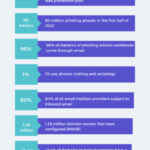Are you navigating the complexities of Section 8 housing assistance and wondering what income doesn’t count? At income-partners.net, we break down the specific types of income that are excluded from Section 8 calculations, providing clarity and guidance to help you maximize your benefits and explore new income partnership opportunities. Discover how to optimize your financial situation while benefiting from housing assistance. This article will cover everything, from earned income disregards to asset limitations and rental assistance programs.
1. What Types of Income Are Excluded Under Section 8 Guidelines?
Under Section 8, also known as the Housing Choice Voucher Program, certain types of income are excluded when determining eligibility and calculating rental assistance. These exclusions aim to ensure that families are not penalized for specific forms of financial support or assistance they receive.
Here’s a breakdown of income exclusions under Section 8 guidelines:
- Child Earnings: Income earned by children under the age of 18 is excluded.
- Foster Care Payments: Payments received for the care of foster children or adults are excluded.
- Lump-Sum Additions to Assets: Lump-sum additions to family assets, such as inheritances or insurance payments, are generally excluded.
- Medical Expense Reimbursements: Reimbursements for medical expenses are excluded.
- Live-In Aide Income: The income of a live-in aide is excluded.
- Student Financial Assistance: Student financial assistance is excluded.
- Hostile Fire Pay: Special pay for a family member in the Armed Forces exposed to hostile fire is excluded.
- HUD Training Program Amounts: Amounts received under training programs funded by HUD are excluded.
- Plan for Achieving Self-Support (PASS) Amounts: Amounts received by a person with a disability under a PASS plan are excluded.
- Reimbursements: Amounts received for out-of-pocket expenses in publicly assisted programs are excluded.
- Resident Service Stipends: Modest stipends for residents performing services for the Public Housing Agency (PHA) are excluded.
- Employment Training Programs: Incremental earnings from qualifying state or local employment training programs are excluded.
- Temporary, Nonrecurring, or Sporadic Income: Temporary, nonrecurring, or sporadic income, including gifts, is excluded.
- Nazi Reparations: Reparation payments to persons persecuted during the Nazi era are excluded.
- Student Earnings Over $480: Earnings over $480 for each full-time student 18 or older are excluded.
- Adoption Assistance Over $480: Adoption assistance payments over $480 per adopted child are excluded.
- Deferred SSI or SSDI: Deferred periodic amounts from Supplemental Security Income (SSI) and Social Security Disability Insurance (SSDI) received in a lump sum are excluded.
- Property Tax Refunds: Refunds for property taxes paid on the dwelling unit are excluded.
- Developmental Disability (DD) Assistance: Amounts paid by a state agency to a family with a member who has a developmental disability are excluded.
- Other Federal Exclusions: Amounts specifically excluded by any other federal statute are excluded.
Understanding these exclusions can help applicants accurately report their income and maximize their eligibility for Section 8 housing assistance.
2. How Do Child Support Payments Affect Section 8 Eligibility?
Do child support payments impact your Section 8 eligibility? Generally, child support payments received by a family are considered income and must be reported. However, there are specific nuances to consider.
When assessing eligibility for Section 8, the Housing and Urban Development (HUD) guidelines state that all sources of income must be disclosed. Child support is typically included as part of the household’s gross income.
However, it’s crucial to understand how this income is calculated and verified. Public Housing Agencies (PHAs) will often require documentation, such as court orders or payment records, to confirm the amount and consistency of child support received. It is also important to note that, in some cases, if the child support is earmarked for specific expenses like medical care or education, the PHA may exclude those amounts from the total income calculation.
For individuals paying child support, these payments are not typically deducted from their income for Section 8 eligibility purposes. The focus remains on the income available to the household seeking assistance.
Understanding these regulations can significantly impact your eligibility and the amount of assistance received. For example, accurately reporting child support income can prevent future discrepancies and ensure compliance with HUD guidelines. Seeking guidance from financial advisors or housing specialists can provide clarity and support in navigating these complexities.
 Child Support Payments' Impact on Section 8 Eligibility, Featuring a single parent receiving child support payments.
Child Support Payments' Impact on Section 8 Eligibility, Featuring a single parent receiving child support payments.
3. What Is Considered Earned Income Under Section 8, and What Part Can Be Disregarded?
Earned income under Section 8 refers to wages, salaries, tips, and other amounts received as compensation for work performed. Not all earned income is treated the same; certain disregards can significantly impact the calculation of rent and assistance.
The earned income disregard (EID) is a provision designed to encourage self-sufficiency among Section 8 recipients. It allows certain families to exclude a portion of their increased earnings when calculating their rent. Specifically, this applies to families that include individuals with disabilities. Under the EID, families can have 100% of their increased earnings excluded for the first year and 50% excluded during the second year.
For instance, consider a family where one member secures a new job or receives a raise. If they qualify for the EID, the Public Housing Agency (PHA) will disregard the increase in earnings when determining the family’s rent. This means the family can enjoy the benefits of their higher income without an immediate and corresponding increase in rent.
To qualify for the EID, certain criteria must be met, often involving verification of disability status and employment. Families should consult their local PHA for specific requirements and application procedures.
Understanding and utilizing the earned income disregard can provide substantial financial relief and incentivize employment among Section 8 recipients. It’s a valuable tool that supports families in achieving greater economic stability.
4. How Does Student Financial Aid Affect Section 8 Eligibility and Benefits?
When determining eligibility for Section 8 housing assistance, student financial aid is generally excluded from the calculation of annual income. This exclusion aims to support individuals pursuing education without negatively impacting their access to affordable housing.
According to HUD (Housing and Urban Development) guidelines, the full amount of student financial assistance is typically excluded, whether it is paid directly to the student or to the educational institution. This includes grants, scholarships, and loans intended for tuition, fees, books, and other educational expenses.
However, it’s essential to understand the specifics of what qualifies as student financial aid. Funds specifically designated for living expenses, such as room and board, may be treated differently. While tuition-related aid is usually excluded, amounts provided for housing might be considered income.
To ensure accurate reporting, applicants should provide detailed documentation of their financial aid packages. This documentation should clearly outline the types of aid received and their intended uses. Public Housing Agencies (PHAs) will review this information to determine which portions, if any, should be included in the annual income calculation.
For example, if a student receives a grant that covers tuition and books, those amounts are typically excluded. If the same student receives a stipend for living expenses, that portion might be considered income.
Navigating these rules requires careful attention to detail. Students receiving Section 8 assistance should maintain thorough records and communicate regularly with their PHA to ensure compliance and avoid potential discrepancies.
5. What Happens if I Receive a Lump-Sum Payment, Such as an Inheritance or Settlement?
Receiving a lump-sum payment, such as an inheritance or settlement, can significantly impact your Section 8 eligibility and benefits. It’s crucial to understand how these payments are treated to avoid potential issues with your housing assistance.
Generally, lump-sum additions to family assets, such as inheritances or insurance payments, are excluded when determining eligibility and calculating rental assistance. However, the devil is in the details. HUD regulations specify that these one-time payments are typically not considered income. Instead, they are viewed as assets.
This distinction is critical because Section 8 eligibility also depends on asset limitations. If the lump-sum payment increases your total assets beyond the allowable limit, it could affect your eligibility. As of 2024, the asset limit for most Section 8 programs is $50,000.
For example, if you receive an inheritance of $40,000 and your existing assets are $20,000, your total assets would be $60,000, exceeding the limit. In this case, you would need to take action to reduce your assets below the limit to maintain your eligibility.
Strategies to manage lump-sum payments include:
- Spending the Money: Using the funds for allowable expenses, such as home repairs or medical bills, can reduce your asset total.
- Investing in Exempt Assets: Some assets, like retirement accounts, may be exempt from asset calculations.
- Establishing a Special Needs Trust: If you have a disability, a special needs trust can protect your assets while maintaining eligibility for government benefits.
It’s essential to report any lump-sum payments to your Public Housing Agency (PHA) promptly. They can provide guidance on how the payment will affect your eligibility and offer advice on managing your assets. Ignoring this step could lead to retroactive rent adjustments or even termination of your Section 8 assistance.
 Lump-Sum Payment Impact on Section 8 Eligibility, Featuring an individual receiving an inheritance check.
Lump-Sum Payment Impact on Section 8 Eligibility, Featuring an individual receiving an inheritance check.
6. Are There Any Specific Income Exclusions for Individuals With Disabilities Under Section 8?
Yes, Section 8 includes specific income exclusions designed to support individuals with disabilities, recognizing their unique circumstances and needs. These exclusions aim to ensure that those with disabilities are not unfairly penalized when calculating their eligibility for housing assistance.
One significant exclusion is related to the Plan for Achieving Self-Support (PASS). A PASS plan allows individuals receiving Supplemental Security Income (SSI) to set aside income and resources for a specific work goal, such as starting a business or obtaining job training. Any income set aside under an approved PASS plan is excluded from the Section 8 income calculation.
Another crucial exclusion involves impairment-related work expenses (IRWE). These are expenses that an individual with a disability incurs to enable them to work. Examples include specialized equipment, transportation costs, and attendant care services. The amount of these expenses can be deducted from the individual’s gross income when determining their Section 8 eligibility.
Additionally, certain demonstration projects and pilot programs may offer further income exclusions for individuals with disabilities. These programs are designed to test innovative approaches to supporting self-sufficiency and may include provisions that disregard certain types of income.
To take advantage of these exclusions, individuals must provide documentation to their Public Housing Agency (PHA) verifying their disability status and the expenses they incur. This documentation may include medical records, statements from healthcare providers, and proof of expenses.
Understanding these specific income exclusions can significantly benefit individuals with disabilities, helping them access and maintain affordable housing while pursuing their employment goals.
7. How Are Payments From Temporary Assistance for Needy Families (TANF) Treated Under Section 8?
Payments from Temporary Assistance for Needy Families (TANF) are generally considered income under Section 8 guidelines. However, the way they are treated can depend on specific circumstances and the policies of the local Public Housing Agency (PHA).
TANF is a federal program that provides states with block grants to design and implement welfare programs. These programs offer financial assistance and support services to low-income families with children.
Under Section 8, any regular cash assistance received from TANF is typically included in the calculation of a family’s annual income. This income is factored into the determination of eligibility and the amount of rental assistance provided.
However, some exceptions and nuances may apply. For instance, if the TANF payments are specifically earmarked for certain expenses, such as childcare or transportation, the PHA may exclude those amounts from the total income calculation. Additionally, if the TANF recipient is participating in a qualifying employment training program, some portion of the TANF benefits may be disregarded.
To ensure accurate reporting and avoid potential discrepancies, it is crucial for TANF recipients to provide detailed documentation to their PHA. This documentation should include proof of the amount and frequency of TANF payments, as well as any information about specific designations or program participation.
Understanding how TANF payments are treated under Section 8 can help families accurately report their income and maximize their eligibility for housing assistance. Consulting with a housing specialist or financial advisor can provide further clarity and support in navigating these complexities.
8. What Documentation Is Needed to Verify Income Exclusions for Section 8?
To accurately verify income exclusions for Section 8 housing assistance, specific documentation is required to support your claims. The type of documentation needed depends on the nature of the exclusion.
Here is a breakdown of common income exclusions and the corresponding documentation needed:
-
Child Earnings:
- Documentation: Proof of age (birth certificate, school records) and income statements (pay stubs, employer statements) specifying the child’s earnings.
-
Foster Care Payments:
- Documentation: Official foster care placement documents from the relevant child welfare agency, detailing the payments received for the care of foster children or adults.
-
Lump-Sum Additions to Assets (e.g., inheritances, insurance payments):
- Documentation: Copies of inheritance documents, insurance settlement statements, or any official paperwork indicating the lump-sum amount and its source.
-
Medical Expense Reimbursements:
- Documentation: Records of medical expenses (bills, receipts) and corresponding reimbursement statements from insurance companies or other sources.
-
Live-In Aide Income:
- Documentation: A signed statement from the head of household confirming the live-in aide’s status, along with the aide’s income verification (if any).
-
Student Financial Assistance:
- Documentation: Official financial aid award letters from the educational institution, detailing the types and amounts of assistance (grants, scholarships, loans) and their intended uses.
-
Hostile Fire Pay:
- Documentation: Military pay stubs or official statements indicating the receipt of hostile fire pay.
-
HUD Training Program Amounts:
- Documentation: Official documentation from the HUD training program, outlining the amounts received and the program’s purpose.
-
Plan for Achieving Self-Support (PASS) Amounts:
- Documentation: Approval letter from the Social Security Administration (SSA) confirming the PASS plan and the amount of income being set aside.
-
Reimbursements:
- Documentation: Receipts or statements showing the out-of-pocket expenses incurred and the corresponding reimbursements received from publicly assisted programs.
-
Resident Service Stipends:
- Documentation: Official documentation from the Public Housing Agency (PHA) or owner, detailing the stipend amount and the services performed.
-
Employment Training Programs:
- Documentation: Official documentation from the employment training program, outlining the goals, objectives, and the incremental earnings and benefits received.
-
Temporary, Nonrecurring, or Sporadic Income:
- Documentation: While often hard to document, any available proof of the income’s temporary or nonrecurring nature (e.g., a letter explaining a one-time gift).
-
Nazi Reparations:
- Documentation: Official documentation from the foreign government or relevant agency, confirming the reparation payments.
-
Student Earnings Over $480:
- Documentation: Proof of full-time student status (school enrollment records) and income statements showing earnings exceeding $480.
-
Adoption Assistance Over $480:
- Documentation: Official adoption assistance agreement or payment records, showing payments exceeding $480 per adopted child.
-
Deferred SSI or SSDI:
- Documentation: Official documentation from the Social Security Administration (SSA), detailing the deferred amounts and how they are received.
-
Property Tax Refunds:
- Documentation: Official property tax refund statements from the state or local government.
-
Developmental Disability (DD) Assistance:
- Documentation: Official documentation from the state agency, outlining the payments made to offset the cost of services and equipment.
-
Other Federal Exclusions:
- Documentation: Official documentation from the relevant federal agency, specifying the exclusion and the amounts involved.
It is essential to provide complete and accurate documentation to your Public Housing Agency (PHA) to ensure proper verification of income exclusions. Failure to do so may result in an incorrect income calculation and potential loss of benefits.
 Documentation Needed for Section 8 Income Exclusions, Featuring an individual organizing financial documents.
Documentation Needed for Section 8 Income Exclusions, Featuring an individual organizing financial documents.
9. Can Changes in Income Affect My Section 8 Benefits, and How Often Do I Need to Report Them?
Yes, changes in income can significantly affect your Section 8 benefits. It’s crucial to understand when and how to report these changes to avoid potential issues with your housing assistance.
Under Section 8 guidelines, you are required to report any changes in your household income to your Public Housing Agency (PHA) promptly. This includes increases or decreases in wages, salaries, tips, and other sources of income. Failure to report these changes can lead to retroactive rent adjustments, penalties, or even termination of your Section 8 assistance.
The frequency with which you need to report income changes depends on the policies of your local PHA. However, a general guideline is to report any significant change within 10 to 14 days of it occurring. A significant change typically refers to any increase or decrease in income that exceeds a certain threshold, as defined by your PHA.
In addition to reporting income changes, you will also be required to undergo a periodic re-certification process. This usually occurs annually, but some PHAs may conduct it more frequently. During re-certification, you will need to provide updated documentation of your income, assets, and household composition.
Here are some examples of income changes that you should report:
- Job Loss: If you or any member of your household loses a job, you must report this change to your PHA.
- New Employment: If you or any member of your household starts a new job, you must report the new income.
- Wage Increase: If you receive a raise or any other increase in your wages, you must report this change.
- Decrease in Hours: If your work hours are reduced, resulting in a decrease in income, you must report this change.
- Receipt of New Income Sources: If you start receiving income from a new source, such as Social Security benefits, unemployment compensation, or child support, you must report this change.
Reporting income changes promptly and accurately is essential to maintaining your Section 8 benefits. It ensures that your rental assistance is calculated correctly and that you remain in compliance with program requirements.
10. What Are Some Common Mistakes to Avoid When Reporting Income for Section 8?
When reporting income for Section 8 housing assistance, accuracy is paramount. Avoiding common mistakes can help ensure you receive the correct level of assistance and prevent potential complications.
One frequent error is underreporting income. Applicants might unintentionally or intentionally omit sources of income, such as part-time jobs, self-employment earnings, or alimony. Remember, all sources of income must be reported, no matter how small they may seem.
Another common mistake is failing to report changes in income promptly. Section 8 requires you to notify your Public Housing Agency (PHA) of any changes in income within a specified timeframe, typically 10 to 14 days. Delaying or neglecting to report these changes can lead to retroactive rent adjustments and potential penalties.
Misunderstanding which income is excluded is also a common pitfall. Certain types of income, such as student financial aid and foster care payments, are excluded from the calculation of annual income. However, it’s crucial to understand the specifics of these exclusions and provide proper documentation to support your claims.
Inadequate documentation is another area where mistakes often occur. Applicants may fail to provide sufficient documentation to verify their income, such as pay stubs, tax returns, or bank statements. Make sure to gather all necessary documents and provide them to your PHA in a timely manner.
Additionally, misreporting household composition can lead to errors in income calculation. The number of household members and their relationship to the head of household can affect the amount of assistance you receive. Be sure to accurately report all household members and any changes in household composition.
Finally, neglecting to ask questions can be a costly mistake. If you are unsure about any aspect of income reporting, don’t hesitate to seek clarification from your PHA. They are there to assist you and ensure that you understand the requirements.
By avoiding these common mistakes, you can help ensure that your income is reported accurately and that you receive the appropriate level of Section 8 housing assistance.
Navigating the intricacies of Section 8 eligibility can be complex, but understanding what income is excluded is a crucial first step. At income-partners.net, we provide the resources and connections you need to not only understand these regulations but also explore opportunities to increase your income and achieve financial stability.
Ready to take control of your financial future? Visit income-partners.net today to discover partnership opportunities, financial strategies, and expert guidance tailored to your unique needs. Whether you’re seeking to increase your earnings, manage your assets, or simply navigate the complexities of Section 8, we’re here to help you succeed. Don’t wait—explore your potential at income-partners.net and start building a brighter future today.
FAQ: What Income Is Excluded From Section 8 Housing Assistance?
-
What types of income are excluded from Section 8 calculations?
Certain types of income, such as child earnings, foster care payments, lump-sum additions to assets, and student financial aid, are excluded from Section 8 calculations. -
How do child support payments affect Section 8 eligibility?
Child support payments received by a family are generally considered income and must be reported. However, child support payments made by an individual are not typically deducted from their income. -
What is considered earned income under Section 8, and what part can be disregarded?
Earned income includes wages, salaries, and tips. The earned income disregard (EID) allows certain families, particularly those with disabilities, to exclude a portion of their increased earnings. -
How does student financial aid affect Section 8 eligibility and benefits?
The full amount of student financial assistance is typically excluded from the calculation of annual income under Section 8 guidelines. -
What happens if I receive a lump-sum payment, such as an inheritance or settlement?
Lump-sum payments are generally excluded as income but may affect your eligibility if they increase your total assets beyond the allowable limit. -
Are there any specific income exclusions for individuals with disabilities under Section 8?
Yes, there are specific exclusions, such as income set aside under a Plan for Achieving Self-Support (PASS) and impairment-related work expenses (IRWE). -
How are payments from Temporary Assistance for Needy Families (TANF) treated under Section 8?
Payments from TANF are generally considered income under Section 8, although some exceptions may apply if the payments are earmarked for specific expenses. -
What documentation is needed to verify income exclusions for Section 8?
Documentation varies depending on the exclusion but may include birth certificates, school records, official financial aid award letters, and approval letters from the Social Security Administration (SSA). -
Can changes in income affect my Section 8 benefits, and how often do I need to report them?
Yes, changes in income can affect your benefits. You typically need to report any significant change within 10 to 14 days of it occurring. -
What are some common mistakes to avoid when reporting income for Section 8?
Common mistakes include underreporting income, failing to report changes in income promptly, misunderstanding which income is excluded, and inadequate documentation.
